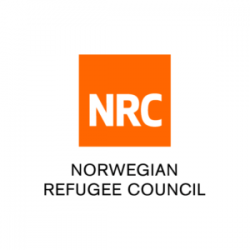KABUL (Pajhwok): Mounting pressure from the acting government to return internally displaced people (IDPs) to their areas of origin has put up to half a million families in Afghanistan at risk of homelessness, warns the Norwegian Refugee Council (NRC).
Decades of war, droughts, political instability and economic collapse have driven displaced Afghans into enclaves around bigger cities that have grown into slum-like settlements over time.
NRC said the informal settlements provided shelter and access to humanitarian assistance to some of Afghanistan’s most vulnerable populations, including IDPs and returning refugees.
Neil Turner, NRC country director, was quoted as saying: “Returning displaced people to remote areas, without their consent, is not possible in a country facing economic collapse, struggling with acute food insecurity and enduring natural disasters.”
Turner added humanitarian agencies, which had remained in Afghanistan since the Taliban takeover, were currently stretched to respond and any returns should be conducted in a safe, dignified and informed way.
In the absence of good alternatives, he cautioned, the closure of informal settlements puts people, already struggling to survive, at greater risk. Many of those living in the makeshift shelters are highly dependent on humanitarian aid.
“Almost 4,000 people have been forced from their makeshift homes just in and around Kabul. If this continues, we will see tens of thousands of people on the move once again, while humanitarian agencies are ill-equipped to respond to yet another wave of displacement.”
NRC called for an immediate halt to settlement closures in Afghanistan. The Taliban, with the support of the international community, needed to urgently work on sustainable solutions for displaced Afghan people, including addressing the economic collapse and the withdrawal of development assistance, it stressed.
Facts and figures:
- Many of the people living in these areas told NRC they had nothing to go back to in their areas of origin. Despite the harrowing conditions they dwell in, they have managed to settle in, find jobs, send their children to school, or gain access to humanitarian assistance.
- In late 2021, the de-facto authorities informed the humanitarian community of their plans to return internally displaced people to areas of origin and close the informal settlements, home to hundreds of thousands of IDPs and returning refugees.
- In Badghis province, eight informal settlements are at imminent risk of closure, a step potentially impacting around 18,000 individuals. In Kabul, the majority of slums are to be shut down.
- Last year 1.3 million people were internally displaced nationwide, due to a combination of conflict and natural disasters. This is unprecedented.
- Over 24 million people – more than half of the Afghan population – need humanitarian assistance to survive. That is an increase of 30 per cent from last year.
- The REACH mid year assessment for Afghanistan indicates a worsening economic situation for Afghans, with households taking on more debt, primarily driven by the need to purchase food amidst rising food prices and shrinking incomes, even as they spend less each month.
- The FAO-WFP have now listed Afghanistan in the top 6 countries that have populations identified or projected to experience starvation or death, or at risk of deterioration towards catastrophic conditions, requiring the most urgent attention.
- The latest Integrated Food Security Phase Classificationindicates that 47% of the population in Afghanistan are facing high levels of acute food insecurity. This is despite substantial humanitarian food assistance that has reached 38% of the population and is now declining since May due to funding constraints.
- NRC has been present in Afghanistan since 2003. It has 1,400 Afghan employees and work in 14 provinces across the country. It assisted over 840,000 people in 2021.
pr/mud







GET IN TOUCH
NEWSLETTER
SUGGEST A STORY
PAJHWOK MOBILE APP